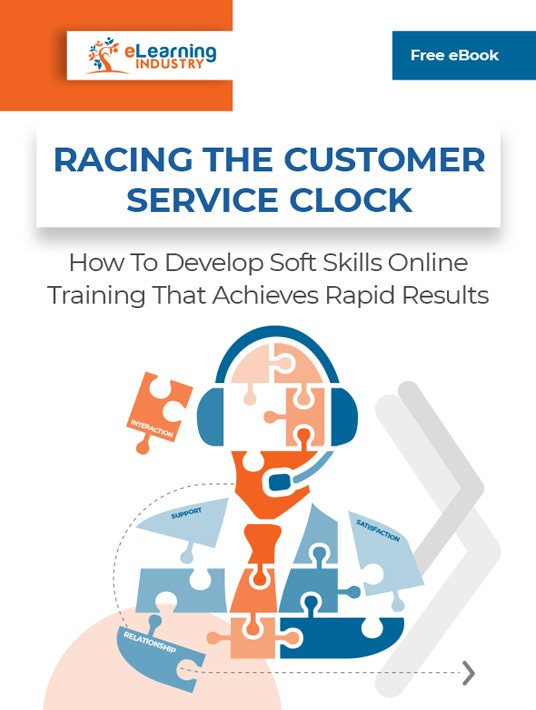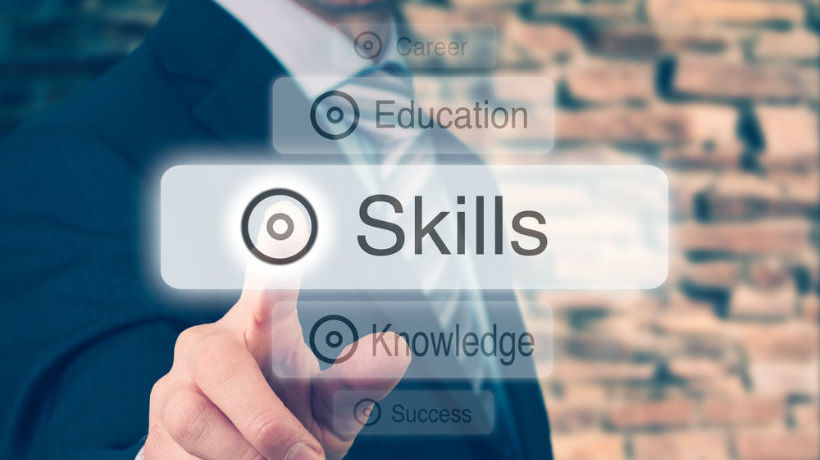Using Social Learning To Enhance Soft Skills Online Training
One of the most effective ways to demonstrate soft skills in the real world is through social interaction. Employees observe favorable behaviors and skills in action by engaging with co-workers. As well as learn mistakes to avoid so that they don't repeat them in the workplace. But how can you incorporate social learning into your soft skills online training course? Is there a way to boost collaboration and peer-based support without digging too deep into your L&D pockets? Here are 7 ways to build soft skills through mentoring, contributions, and online live events.

1. Live Events Hosted By In-House Talent
Invite your top talent to host live events that showcase their skills and areas of expertise. For example, your sales manager can host a webinar on the art of negotiation or persuasion. They field questions at the end and offer follow-up online resources for those who want to upskill on their own. Encourage them to create an outline that covers all the key points. As well as incorporate personal anecdotes and tips for facilitating real-world application. You can also invite guest speakers outside the organization who are known for their talent management or creativity. Like industry thought leaders who have published work on the topic and can bring their wisdom to the team.
2. Social Media Groups
The secret to launching a successful social media group for soft skills online training is niche knowledge. Create a separate group of each skill so that employees know where to turn. For instance, they pay a visit to the compassion-building social media group when they need to improve customer satisfaction. Everyone is there to connect with co-workers and customers on a deeper level. To see things from a fresh perspective and respect different backgrounds. Pin some community guidelines to the top that emphasize the goal of the group and its core competencies.
3. Group Collabs
Develop group collaboration projects that allow employees to demonstrate skill mastery for their teammates. It all starts with a problem that employee training participants must collectively solve. Then they assign roles/tasks based on the strong suits. This process also enables staffers to identify areas for improvement. For example, they compare their creative reasoning or leadership skills to a co-worker's to gauge their own performance. Does the other employee look at the problem laterally and think outside the box? Are they able to evaluate obstacles the same way to achieve the best outcomes?
4. Employee-Contribution Library
Ask employees to develop content for the JIT library to hone soft skills in the workplace. It can be something as simple as a personal anecdote so that peers benefit from their past experiences. Or as involved as a podcast series that covers a broad range of interpersonal skills. Employee training participants learn more by teaching because they must break skills into their most basic components. For instance, what does it mean to be genuinely empathetic or a strong communicator? What key traits must you possess to be proficient in these areas? How can you develop these competencies through social learning?
5. Skillful Serious Games
Social learning isn't restricted to peer-based interactions. Employees can also participate in serious games to build soft skills and observe favorable behaviors. Begin with a brief clip of the skill in action. Such as a virtual staffer who helps a customer and identifies their needs. Then invite the employee training participant to engage with other customer personas to build their own interpersonal skills. Are they able to communicate with the customer and read their non-verbal cues? Employees advance to the next level—and next customer service challenge—when they prove their proficiency.
6. Peer Mentoring
Some soft skills require a personal approach. Peer mentoring or coaching involves teams or pairs that focus on targeted skills. For example, they meet once a week to talk about their work ethic or how to improve their conflict resolution skills. They also share resource links, personal experiences, and helpful pointers. The goal is to bridge gaps and use social learning to forge a stronger team dynamic. Employees might prefer one-on-one coaching for more discreet or personalized support. For instance, a team leader needs to broaden their skills without losing face among subordinates. Thus, they might meet with a fellow manager to fill gaps and identify emerging areas for improvement.
7. Peer Forums
Launch a peer forum where employees discuss soft skills in the workplace and how to achieve their full potential. This gives them a place to ask questions and share stories to get peer-based feedback. For instance, they just encountered a particularly tricky customer or caller who rattled their nerves. What could they have done differently to achieve better results? Which online resources can they use to develop related skills and bridge knowledge gaps? Has anyone dealt with similar situations in the past, and what their approach was? Plus, staffers have the chance to commiserate and vent so that they're ready for work-related stressors.
Integrating social learning requires a micro approach. You must seize every opportunity to foster peer engagement and training collaboration at every stage of the employment cycle. Even something as small as a social media Q&A has the power to build vital skills and facilitate experiential learning. Live events, serious games, and peer mentoring take it to the next level and cater to different preferences and styles. Above all else, you should get employee feedback to gauge their expectations and choose the right social learning resources.
If you need to learn more about the importance of honing soft skills in the workplace, read our eBook Racing The Customer Service Clock: How To Develop Soft Skills Online Training That Achieves Rapid Results and find out all the benefits of investing in your employees' soft skills training.









